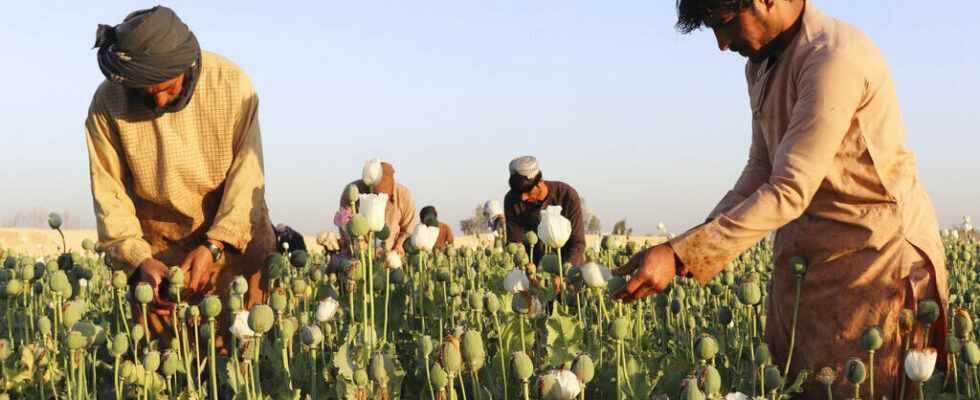The supreme leader of the Taliban, Hibatullah Akhundzada, on Sunday April 3 ordered a ban on poppy cultivation in the country. He warned that authorities would destroy any plantations they find and punish those responsible in accordance with Sharia. But this culture has become an engine of the Afghan economy and supports thousands of peasants.
Afghanistan is by far the world’s largest producer of poppy, from which opium and heroin are extracted. According to estimates, more than 80% of heroin and opium in the world comes from the country. Production and exports there have increased considerably in recent years to reach 6,800 tonnes in 2021, an increase of 8% compared to 2020, according to figures from the United Nations Organization.
Banning it could therefore cause discontent in the countryside, where it supports thousands of families in a country immersed in a unprecedented economic crisis. Afghan opiate revenues are estimated at $1.8-2.7 billion in 2021 and constitute a significant portion of the country’s GDP (14%).
►Read also: The Taliban relaunch the war against opium, a losing battle?
This is not the first time the Taliban have taken such action. The cultivation had already been banned in 2000, a few months before the fundamentalist regime was overthrown by the international coalition led by the United States in 2001. But during the 20 years of guerrilla warfare against the coalition, the Taliban took advantage of the poppy by heavily taxing producers in areas under their control.
Initiatives to reduce production have failed
During their presence in Afghanistan, the United States and its NATO allies tried to reduce poppy cultivation and encourage farmers to produce wheat or saffron instead. Initiatives that failed, while the Taliban controlled the main poppy production areas.
Taliban Deputy Prime Minister Abdul Salam Hanafi denied on April 3 that his movement had promoted poppy cultivation during the twenty-year insurgency: “ How is it then that exports to the whole world have continued, when they (US and allied forces) had full control of Afghanistan? ” did he declare.
►To listen : Opium: the Taliban’s dilemma
